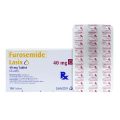Alkaline phosphatase (ALP) is an enzyme found in various tissues throughout the body, with high levels of ALP being indicative of liver disease, bone disorders, or other health problems. While there are a variety of foods that can impact ALP levels in the body, it’s important to note that dietary changes alone may not necessarily bring about significant improvements in ALP levels. Nonetheless, a healthy diet can help support overall liver and bone health, which can help reduce high ALP levels.
In this article, we’ll explore the various foods to avoid if ALP levels are high, along with other dietary and lifestyle factors that can help reduce ALP levels and promote overall health.
High-fat foods
High-fat foods such as fried foods, fast foods, and fatty meats can be detrimental to liver health, which can impact ALP levels. The liver is responsible for producing ALP, and when the liver is damaged or inflamed, ALP levels can increase. Eating a diet high in unhealthy fats can contribute to liver damage and inflammation, so it’s important to limit or avoid these types of foods if ALP levels are high.
Instead of high-fat foods, opt for lean proteins such as chicken, fish, or tofu, along with plenty of fruits and vegetables, whole grains, and healthy fats such as nuts and seeds.
Alcohol
Alcohol is a known liver toxin, and excessive alcohol consumption can contribute to liver damage and inflammation, leading to high ALP levels. If you have high ALP levels, it’s important to limit or avoid alcohol altogether. Even moderate alcohol consumption can contribute to liver damage, so it’s best to err on the side of caution and avoid alcohol altogether.
Refined sugars
Refined sugars such as those found in candy, soda, and other processed foods can contribute to liver damage and inflammation, leading to high ALP levels. These types of foods are also typically low in nutrients and can contribute to weight gain and other health problems. Instead, opt for natural sugars found in fruits, vegetables, and whole grains, which are higher in nutrients and fiber.
Processed foods
Processed foods are typically high in unhealthy fats, refined sugars, and other additives that can contribute to liver damage and inflammation, leading to high ALP levels. Instead of processed foods, opt for whole foods such as fruits, vegetables, whole grains, and lean proteins.
Red meat
Red meat is high in saturated fat, which can contribute to liver damage and inflammation, leading to high ALP levels. Red meat is also linked to an increased risk of heart disease and other health problems. Instead of red meat, opt for lean proteins such as chicken, fish, or tofu, which are lower in saturated fat and higher in nutrients.
Dairy products
Dairy products such as cheese, milk, and butter are high in saturated fat, which can contribute to liver damage and inflammation, leading to high ALP levels. Instead of dairy products, opt for plant-based alternatives such as almond milk or tofu-based cheese.
High-sugar fruits
While fruits are generally healthy, some fruits are higher in sugar than others. High-sugar fruits such as bananas, grapes, and mangoes can contribute to liver damage and inflammation, leading to high ALP levels. Instead of high-sugar fruits, opt for lower-sugar fruits such as berries, apples, and citrus fruits.
Sodium
Sodium is found in high amounts in processed foods and can contribute to liver damage and inflammation, leading to high ALP levels. Instead of sodium-laden processed foods, opt for whole foods that are naturally low in sodium. You can also use herbs and spices to add flavor to your food instead of salt.
Caffeine
Caffeine is found in coffee, tea, and other beverages and can contribute to liver damage and inflammation, leading to high ALP levels. While moderate caffeine consumption is generally considered safe, excessive caffeine consumption can contribute to health problems. If you have high ALP levels, it’s a good idea to limit or avoid caffeine altogether.
Artificial sweeteners
Artificial sweeteners such as aspartame and sucralose are often found in processed foods and beverages and can contribute to liver damage and inflammation, leading to high ALP levels. Instead of artificial sweeteners, opt for natural sweeteners such as honey, maple syrup, or stevia.
Other Dietary and Lifestyle Factors to Consider
In addition to avoiding certain foods, there are several other dietary and lifestyle factors to consider if you have high ALP levels:
Maintain a healthy weight
Being overweight or obese can contribute to liver damage and inflammation, leading to high ALP levels. Maintaining a healthy weight through a balanced diet and regular exercise can help reduce the risk of liver problems and high ALP levels.
Exercise regularly
Regular exercise can help improve liver and bone health, which can help reduce high ALP levels. Aim for at least 30 minutes of moderate-intensity exercise most days of the week.
Stay hydrated
Drinking plenty of water can help flush toxins out of the body and support overall liver and bone health. Aim for at least eight glasses of water per day.
Get enough sleep
Getting enough sleep is important for overall health, including liver and bone health. Aim for seven to eight hours of sleep per night.
Reduce stress
Chronic stress can contribute to liver damage and inflammation, leading to high ALP levels. Finding ways to manage stress such as through meditation, yoga, or deep breathing can help support liver and bone health.
Consider Supplements
Certain supplements may help support liver and bone health, which can help reduce high ALP levels. Some supplements to consider include milk thistle, turmeric, and vitamin D.
Conclusion
While there are a variety of foods that can impact ALP levels in the body, it’s important to note that dietary changes alone may not necessarily bring about significant improvements in ALP levels. Nonetheless, a healthy diet can help support overall liver and bone health, which can help reduce high ALP levels. In addition to avoiding certain foods, it’s important to maintain a healthy weight, exercise regularly, stay hydrated, get enough sleep, reduce stress, and consider supplements to support liver and bone health. If you have high ALP levels, it’s important to work with a healthcare professional to determine the underlying cause and develop a treatment plan. ALSO READ: Is Alkaline Water Safe to Drink





